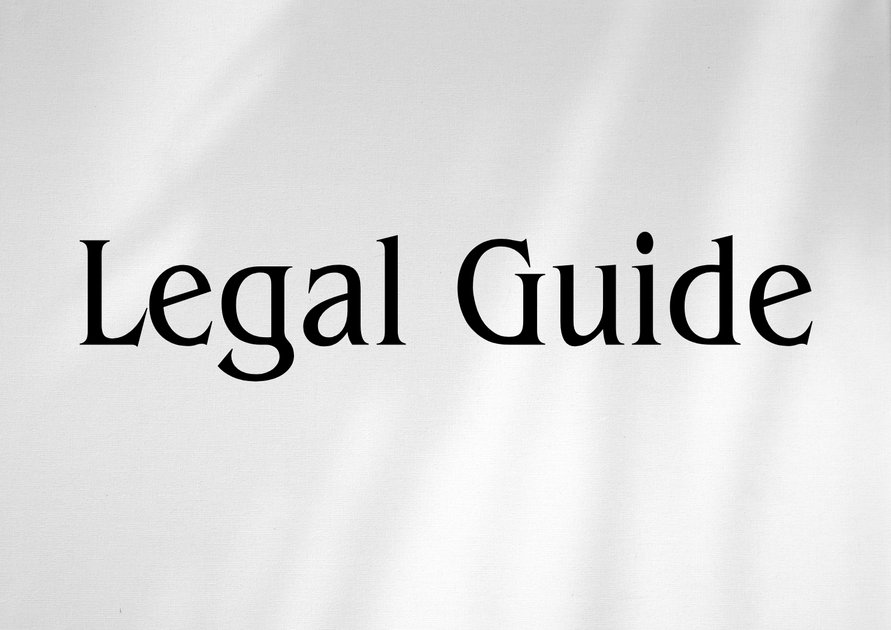Introduction
Arbitration has long been a cornerstone of efficient dispute resolution in the United Arab Emirates (UAE), especially as the nation positions itself as a global commercial hub. In Dubai, the Dubai International Arbitration Centre (DIAC), established under the auspices of the Dubai Chamber of Commerce and Industry, has played a pivotal role in shaping arbitration practices. Recent regulatory changes—most notably the implementation of Decree No. 34 of 2021 regarding the Dubai International Arbitration Centre and subsequent updates—have fundamentally redefined the arbitration landscape within Dubai and, by extension, the wider UAE. Understanding these changes is critical for business executives, legal counsel, HR managers, and compliance officers navigating the UAE’s evolving legal environment.
This article delivers an expert legal analysis of the updated DIAC framework, addressing recent legal reforms, their practical implications for organizations, and best practices to ensure compliance. Drawing from federal decrees, ministry guidelines, and first-hand legal consultancy insights, the following analysis will empower businesses to make informed decisions and mitigate risks associated with arbitration proceedings in Dubai.
Table of Contents
- Overview of Arbitration Law in the UAE
- The Evolution of DIAC
- Key Features of the Updated DIAC Framework
- Impact and Practical Application of the DIAC Reforms
- Comparison: Previous vs. Current Arbitration Rules
- Case Studies and Hypotheticals
- Risks, Penalties, and Compliance Strategies
- Conclusion and Forward-Looking Insights
Overview of Arbitration Law in the UAE
The Legal Foundation
The UAE has developed a sophisticated arbitration regime underpinned by Federal Law No. 6 of 2018 Concerning Arbitration (the “UAE Arbitration Law”). This law, modeled closely on the UNCITRAL Model Law, governs the conduct, enforceability, and scope of arbitral proceedings across the country, ensuring international best practices are observed.
Key Milestones
- Federal Law No. 6 of 2018: Provides the legislative foundation for arbitration.
- Cabinet Resolution No. 57 of 2018: Establishes executive regulations for arbitration procedures.
- Decree No. 34 of 2021 (Dubai): Centralizes arbitration administration under the new DIAC entity, streamlining procedures and consolidating legacy arbitration centers.
These legal instruments cement the UAE’s objective to be a preferred forum for regional and international dispute resolution, offering neutrality, enforceability, and procedural rigor.
The Evolution of DIAC
From Multiple Centers to a Unified DIAC
Historically, Dubai hosted several distinct arbitration centers, most prominently DIAC and the DIFC-LCIA Arbitration Centre. Decree No. 34 of 2021 dissolved the DIFC-LCIA Centre, consolidating its mandates under the newly reorganized DIAC and positioning DIAC as the single primary arbitration institution in Dubai. This centralization is designed to eliminate jurisdictional ambiguities and ensure procedural efficiency for all arbitration users.
Legal Framework of the New DIAC
Under the new DIAC Charter and Statute, the center now functions as a non-profit independent entity, supervised by an impartial Board of Directors and an Administrative Body charged with the management of arbitration cases. Key sources include:
- Decree No. 34 of 2021 (Dubai Official Gazette No. 533, 2021)
- DIAC Statute Adopted in 2022
These instruments provide the regulatory infrastructure for the updated DIAC and set out its rules, jurisdiction, administrative mechanisms, and procedures for the recognition and enforcement of arbitral awards.
Key Features of the Updated DIAC Framework
1. Unified Jurisdiction and Enhanced Authority
The updated DIAC serves as the preeminent institution for both onshore and offshore (DIFC) arbitrations in Dubai, streamlining case administration and providing clarity regarding applicable rules and seat of arbitration.
2. Revised Institutional Rules
In March 2022, DIAC released its new Arbitration Rules, replacing the 2007 rules. These updated rules introduce contemporary approaches, such as:
- Procedural Efficiency: Time limits, early dismissal of unmeritorious claims, and digital submissions.
- Technology Integration: Facilitating virtual hearings and electronic exchanges.
- Emergency Arbitration Provisions: Allowing parties to seek urgent interim relief before the tribunal is constituted.
- Joinder and Consolidation: Addressing multi-party and multi-contract disputes effectively.
3. Administration and Governance
The DIAC is led by an elite Board of Directors and a Supervisory Board which oversees panel appointments and procedural management. This governance framework ensures impartiality, transparency, and ethical standards in arbitral proceedings.
4. Cost-Recovery and Fee Transparency
Fee schedules are now published openly, providing parties with upfront cost expectations and clearer mechanisms for fee deposit, distribution, and recovery.
Table: Key Upgrades in the New DIAC Rules
| Feature | Previous DIAC Rules (2007) | DIAC Rules (2022+) |
|---|---|---|
| Scope & Jurisdiction | DIAC or DIFC-LCIA, jurisdiction confusion | Single, unified DIAC with clear scope |
| Digital Case Management | Primarily paper-based | Digital submissions and e-filings allowed |
| Emergency Arbitration | Not specifically regulated | Available with clear procedures |
| Consolidation/Joinder | Very limited provisions | Enhanced, adapting to complex disputes |
| Transparency of Fees | No upfront detailed fee table | Published schedule and guidelines |
| Time Efficiency | Fewer time-bound milestones | Express deadlines and summary procedures |
Impact and Practical Application of the DIAC Reforms
Enhanced Certainty for Businesses
The consolidation of arbitration under DIAC means businesses now enjoy a predictable, well-regulated forum for resolving disputes, whether their contracts are governed by UAE civil law or the laws of the DIFC.
Implications for Contract Drafting
All model contracts and agreements referencing arbitration in Dubai must now specify the new DIAC as the administering body. Retaining outdated references to the DIFC-LCIA or the old DIAC can result in jurisdictional challenges or delays during enforcement. Legal counsel should proactively update contract templates in light of these developments.
International Enforceability of Awards
Thanks to the UAE’s accession to the New York Convention (1958) and robust support under the Federal Law No. 6 of 2018, DIAC arbitral awards—whether onshore or offshore—are readily enforceable in most major jurisdictions worldwide.
Real-World Example: Updating a Supply Contract
Consider a UAE company previously using a DIFC-LCIA arbitration clause for a major supply agreement. After the 2022 reforms, the company must update its contract to reference DIAC as the proper forum. Failure to do so could result in procedural confusion or even invalidation of the arbitration process, increasing exposure to litigation risk.
Compliance Flow Diagram Suggestion
- Step 1: Audit all contracts referencing arbitration in Dubai.
- Step 2: Amend outdated arbitration clauses to refer to “Dubai International Arbitration Centre (DIAC) under the 2022 Rules.”
- Step 3: Train in-house counsel and contract managers on new DIAC procedures.
- Step 4: Monitor ongoing legal developments for further updates.
Comparison: Previous vs. Current Arbitration Rules
| Parameter | Old Regime | New DIAC Regime (2022+) |
|---|---|---|
| Governing Law | Possible overlap between onshore and DIFC laws | Clear provisions for seat and governing law selection |
| Appointment of Arbitrators | DIAC Committee direct selection, often opaque process | Enhanced transparency and criteria for appointment |
| Interim Measures | Only tribunal post-constitution could grant interim relief | Emergency arbitrator empowered to grant urgent relief |
| Cases with Multiple Parties | Limited handling of multi-party issues | Express joinder and consolidation rules |
| Challenge Procedures | Lack of clear protocols | Codified challenge/recusal protocols |
| Fee Structure | Unclear for smaller claims; lack of predictability | Tiered, transparent model published on DIAC website |
Case Studies and Hypotheticals
Case Study 1: Construction Sector Dispute
Scenario: Two multinational contractors enter a Dubai infrastructure contract stipulating ‘arbitration in Dubai under the DIAC Rules.’ When a dispute arises over milestones, the new DIAC swiftly appoints a tribunal, facilitates virtual hearings (critical during the pandemic), and, within the strict new expedited timeline, delivers an enforceable award recognized in both the UAE and the contractors’ home countries.
Takeaway: The updated DIAC Rules enable complex sector disputes to be handled efficiently and with enforceability both regionally and internationally.
Case Study 2: SME Commercial Dispute
Scenario: A UAE SME faces late payment from a foreign distributor. Leveraging the new summary procedure and digital case management in the DIAC Rules, the SME expedites its case at a manageable cost, obtaining a final award enforceable through the UAE judiciary under the streamlined DIAC protocol.
Takeaway: The practical changes lower the bar for SMEs seeking affordable, efficient arbitration in the UAE.
Hypothetical: Risks of Outdated Arbitration Clauses
Scenario: Company A’s historic contracts refer to a non-existent DIFC-LCIA. When a dispute arises, the opposing party contests DIAC’s jurisdiction. Result: procedural delays, potential nullification of the arbitration process, and costly litigation—a preventable risk.
Consultancy Insight: Legal teams should prioritize reviewing and updating their standard arbitration clauses with immediate effect.
Risks, Penalties, and Compliance Strategies
Risks of Non-Compliance
- Nullification of Arbitration Agreements: Outdated dispute resolution clauses could result in null and void proceedings.
- Enforcement Hurdles: Enforcement of arbitral awards may be delayed or denied if the proper forum is not designated under the new DIAC Rules.
- Jurisdictional Challenges: Counterparties may contest the seat, law, or legitimacy of the tribunal.
- Liability for Costs: Delays and procedural errors can dramatically increase legal costs and exposure to counterclaims.
Recommended Compliance Strategies
- Contract Audit Program: Establish a routine review of all outstanding contracts for arbitration clause conformity.
- Ongoing Training: Educate legal and procurement teams about the updated DIAC procedures and statutory requirements (Decree No. 34 of 2021; DIAC Rules 2022).
- Template Standardization: Update precedent contract templates to reflect the unified DIAC seat and rules.
- Liaison with Legal Counsel: Seek expert legal input in drafting bespoke arbitration provisions for complex or cross-border transactions.
Visual Suggestion: Arbitration Compliance Checklist Table
| Checklist Item | Status | Notes |
|---|---|---|
| Review all active contracts for outdated arbitration clauses | Pending/In Progress/Completed | |
| Update to DIAC 2022 rules where necessary | ||
| Train internal contract management teams | ||
| Monitor DIAC announcements for future changes |
Conclusion and Forward-Looking Insights
The overhaul of Dubai’s arbitration architecture through Decree No. 34 of 2021 and the launch of the 2022 DIAC Rules represents a transformative step for dispute resolution in the UAE. These reforms provide businesses—whether multinational corporations or local SMEs—with a clear, efficient, and internationally respected framework for resolving disputes. The centralization of arbitral administration enhances certainty, eliminates the confusion of multiple forums, and ensures the UAE remains at the forefront of global arbitration best practices.
Looking ahead, organizations must stay vigilant as the arbitration landscape evolves further. Proactive adoption of DIAC-compliant clauses, ongoing legal training, and coordinated policy development will insulate businesses from unnecessary risks. As regulatory and judicial trends continue to shift, the ability to anticipate and adapt to legislative updates will distinguish market leaders from those beset by avoidable disputes or enforcement challenges.
Best Practice: Engage regularly with expert UAE legal advisors and monitor government publications, such as the UAE Federal Legal Gazette and official notices from the Dubai Chamber, to remain agile and compliant in this dynamic legal environment.
In summary, the updated DIAC framework not only modernizes arbitration in Dubai but also elevates the UAE’s standing as a trusted jurisdiction for global business. Smart legal compliance today will pay dividends tomorrow as the region cements its role in international commerce and dispute resolution.



